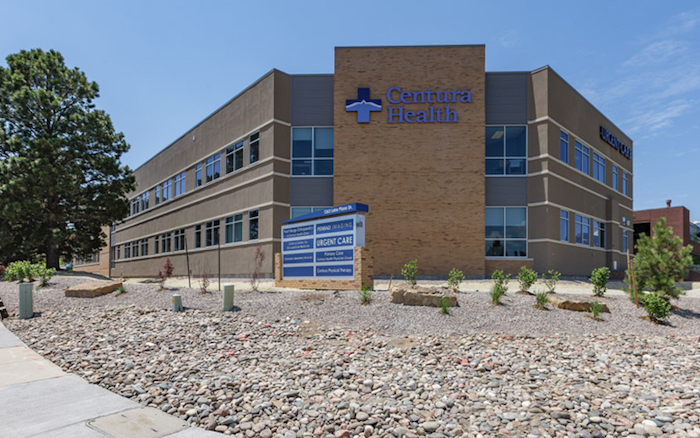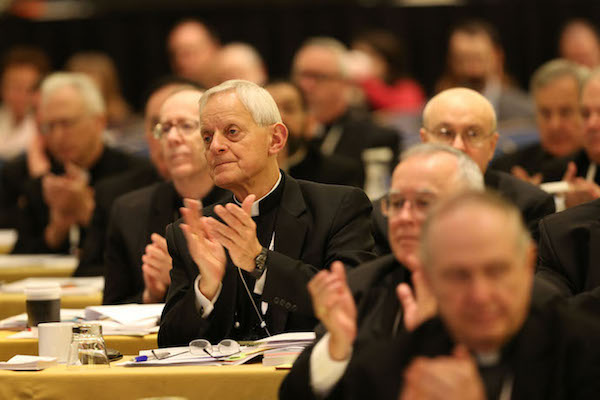— Our columnist on colonoscopies, health scares, and his issues with the Vatican.

By
A long time ago, I was Catholic. Very recently, I was ill. Perhaps terminally, I genuinely believed.
As the Catholicism came first, let’s get that out of the way. As I grew, I became aware of the Catholic identity. This was realized primarily in a suburban church in Springfield, Va., in the 1970s. I did, however, have a beautiful first Communion in the American Cathedral in Paris. All the trappings! Never quite made it to Confirmation.
By that point, my parents were divorced and my mother no longer received the Sacrament. “I’m just learning how to masturbate, while she’s the most upstanding member of our community, yet I’m still in God’s good graces and she’s the Whore of Babylon?”
She explained to me that the rules would disqualify her, being divorced and all, now living in sin with my to-be stepfather. Dora is very good about following rules. And she taught me the same, so I, too, jumped ship. At that juncture, it seemed a sham. I was glad to have been cut off at the pass, no longer tithing bits of my weekly allowance to fund my future oppression. Dora was thrilled to have extra free time on Sundays.
Plenty of queer Catholics stick around, and good for them. I certainly don’t hate the Catholic Church. Plenty of Jesuits are downright delightful. It is, however, arguably the wealthiest religion and therefore the most powerful. However you preach it, it’s certainly the one with which I have the most baggage.
Besides, the only reason my mother was Catholic was that conversion was a condition for marrying my father. He, meanwhile, was hardly devout. Mom, meanwhile, is back with the Unitarians, the faith community in which she was raised.
That’s my Catholic backstory in a nutshell.
The illness popped up during the summer. My first bout of COVID hit in May, seemingly inconsequential. By August, though, I was dragging. Two months overdue for my annual physical, I got myself checked.
About 48 hours later, I was notified that I should get myself to an emergency room. Hemoglobin-wise, I was running on empty. How nice to get a delicious pint of blood at Sibley Memorial Hospital, rather than in the basement of Comet Ping Pong. QAnon tells me that’s where all the cool kids go.
The thing with iron-poor anemia is that it could be a warning of something serious in one’s gastrointestinal tract. My previous colonoscopy revealed six polyps. A welcome outcome would be a fresh crop of bleeding polyps. Coincidentally, I already had my next colonoscopy scheduled.
On the table, eyes open, I watched the screen as the camera made its way through my guts. C’mon, big money! C’mon, bleeders! C’mon, polyps! On this fantastic journey, bupkis. Well, nearly bupkis. Two inconsequential polyps. Zap and zap and Bob’s your uncle.
From there, the next step would be an endoscopy. I’d already had one of those, too, back when I had the previous colonoscopy. Apparently I was mildly anemic back then. I chalked it up to bleeding hemorrhoids. (Full transparency: I love being at a point in life that telling the world I had bleeding hemorrhoids causes me zero embarrassment. Seriously, I should’ve mentioned it in the holiday letter. I’ll spare you the photos.)
This is where the bureaucracy kicks in. With Swiss roots on Dora’s side, I generally love bureaucracy. Write a letter to a faceless cog in a department? Yes, please! But bouncing through medical “portals” and dancing to hold music was figuratively painful. As I waited for insurance clearance, which wasn’t actually required, disturbing insights were piling up.
I started losing weight. Could that be related to cancer…? You bet! Those little aliens can siphon off your calories for their own nefarious — yet quite natural — purposes. Greedy little cancer bastards. Of course, starting to walk three miles every morning like Death is nipping at my heels may have contributed to weight loss.
Then there was the conversation with my baby sis, the nurse practitioner.
“We really do have a bad GI history in our family.” Uh, what? I thought my father died of kidney cancer. Casey corrected me. He may have had kidney cancer, but he died of duodenal cancer. Huh. Who knew? Casey, that’s who.
“And Uncle Mike.” Excuse me? WTF? Stomach cancer. “He died at 62. Like Dad.” Oh, my.
Then more waiting till I was finally in for an appointment to swallow a camera, aka capsule endoscopy. It had eight hours to travel the Willy River, taking 50,000 images. Returning the attendant equipment at the end of the eight hours, I asked if I’d hear something in a week or so.
“Well, they look at these images after hours, so maybe two weeks.”
Oy. Golden Girl Rose had to wait three days for the results of her HIV test. We all did back then. I waited three weeks for what I was now certain would be a hybrid of Jabba the Hutt and the Mucinex blob living somewhere inside of me, killing me. While it was probably the iron supplements I’d begun taking giving me stomach upset at times, I was sure it was them. But it wasn’t. The endoscopy revealed more nothing.
Today, I still don’t have a definitive answer, but my blood is much improved. If it turns out I have leukemia — very unlikely — I’ll let you know.
Being a planner, I used those weeks of dread and uncertainty to come to terms with my mortality. I planned my wake, though made the mistake of sharing the event playlist with some dear friends. I’m sure they judged my harshly. Janet Jackson? Tove Lo?
This is where the Catholic Church stepped back in. I’ve had my fights with them over the years, of course. Our biggest falling out was over marriage equality. Among my medical destinations in this journey has been the Lombardi Comprehensive Cancer Center. It’s Catholic. I’m certain I’ve seen a papal statuette as I’ve walked through the Medstar Georgetown University Hospital to get to those appointments. It gives me the willies.
It’s not because the Vatican has an abysmal record on LGBTQ rights. It’s because the church just won’t get out of the way. Specifically, I’m referring to physician-assisted dying and compost cremation. These are both very attractive options to me. If not today, still at some point. Plenty of religions are opposed to the former. Again, though, I’ve got the baggage with the Catholic Church, so I can be angrier at them. Much the same way I am so very angry at Morrissey for going full-on xenophobe. I adored you, Moz!
The Vatican fought against my marriage. Fought and lost. I can only hope that it will lose in its efforts to block the rest of us from a full range of medical and funereal options. New York has just allowed compost cremation, which is a beautiful way to incorporate your body back into the physical universe.
The New York State Catholic Conference, representing the state’s bishops, does not agree, putting its muscle into fighting the new law.
“Composting is something we as a society associate with a sustainable method of eliminating organic trash that otherwise ends up in landfills. But human bodies are not household waste, and the bishops do not believe that the process meets the standard of reverent treatment of our earthly remains,” wrote their executive director, David Poust, as reported in the Catholic Courier.
I will die at some point, of course. I was hoping it wouldn’t be any skin off the Vatican’s ass for me to do it my way. But as long as it keeps sticking its rosary into other folks’ business, it will remain a very bitter breakup.
Complete Article ↪HERE↩!


